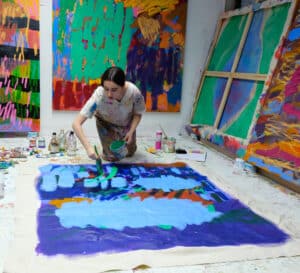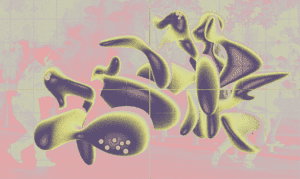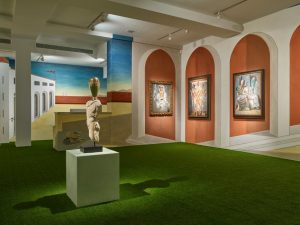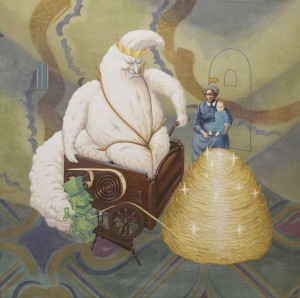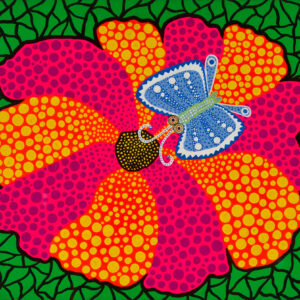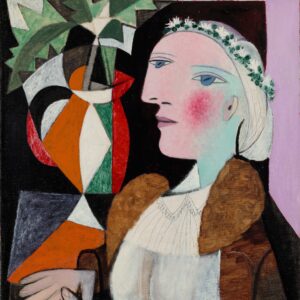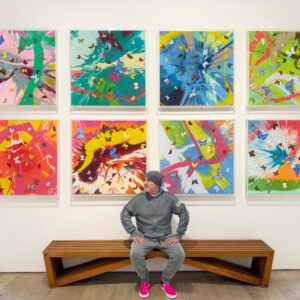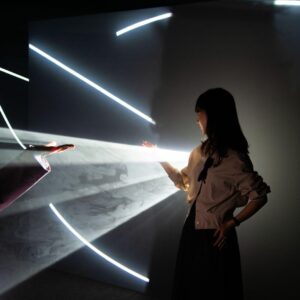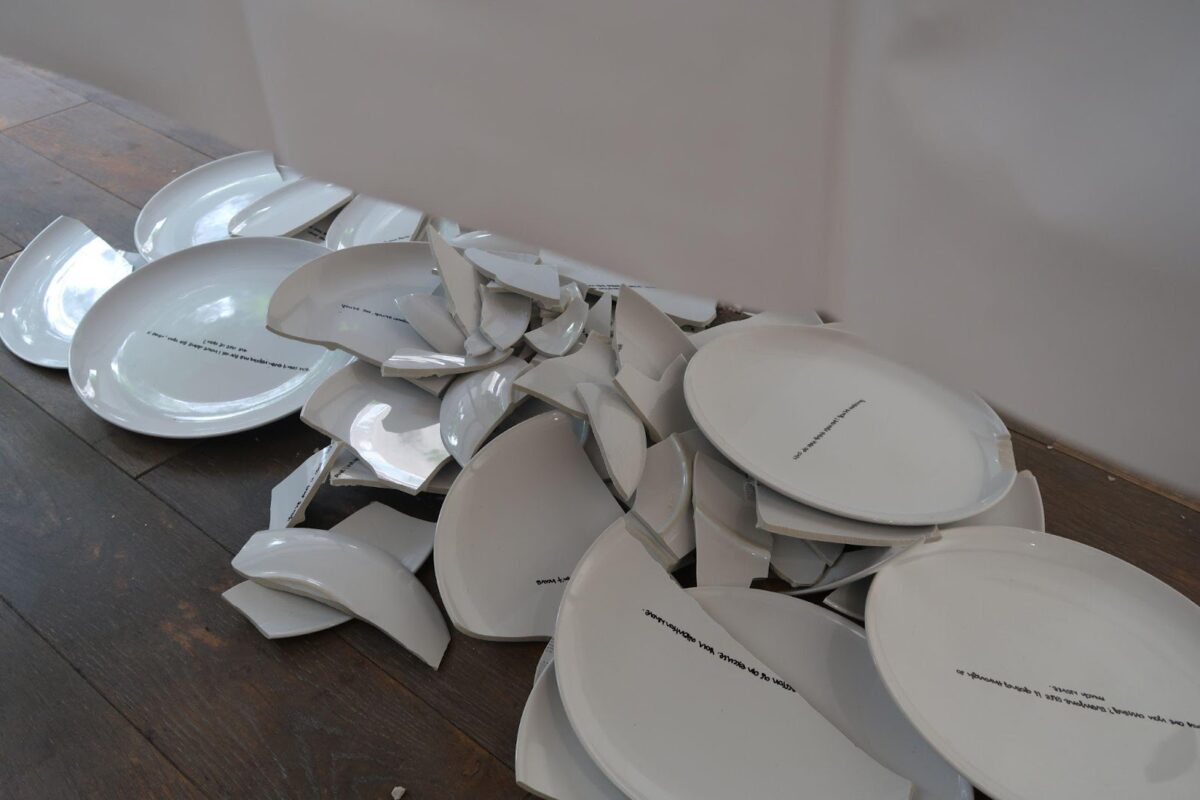
There’s many a restaurant that I’ve been tempted into by spotting the food through the window. However, it’s never happened at a gallery – that is until I walked past Lu Lei’s exhibition at Fitzrovia Gallery.
Visitors can’t just look at the home-cooked food of a traditional Southeast Asian dish of Lo Mai Gai (glutinous rice and chicken), followed by gelatinous cubes of agar-agar jelly and chopped lychee for dessert. It allows visitors to snack away while checking out the writing and the recipe cards on the walls that make up a large part of the show.
It’s not all comforting, as the exhibition title suggests, as the sound of breaking plates echoes through the space and fragments of the broken plates can be seen swept under the table. We have to walk through the space to be confronted with a recording of the performance piece where the artist smashes a series of plates on the floor in what feels like an outburst of catharsis.
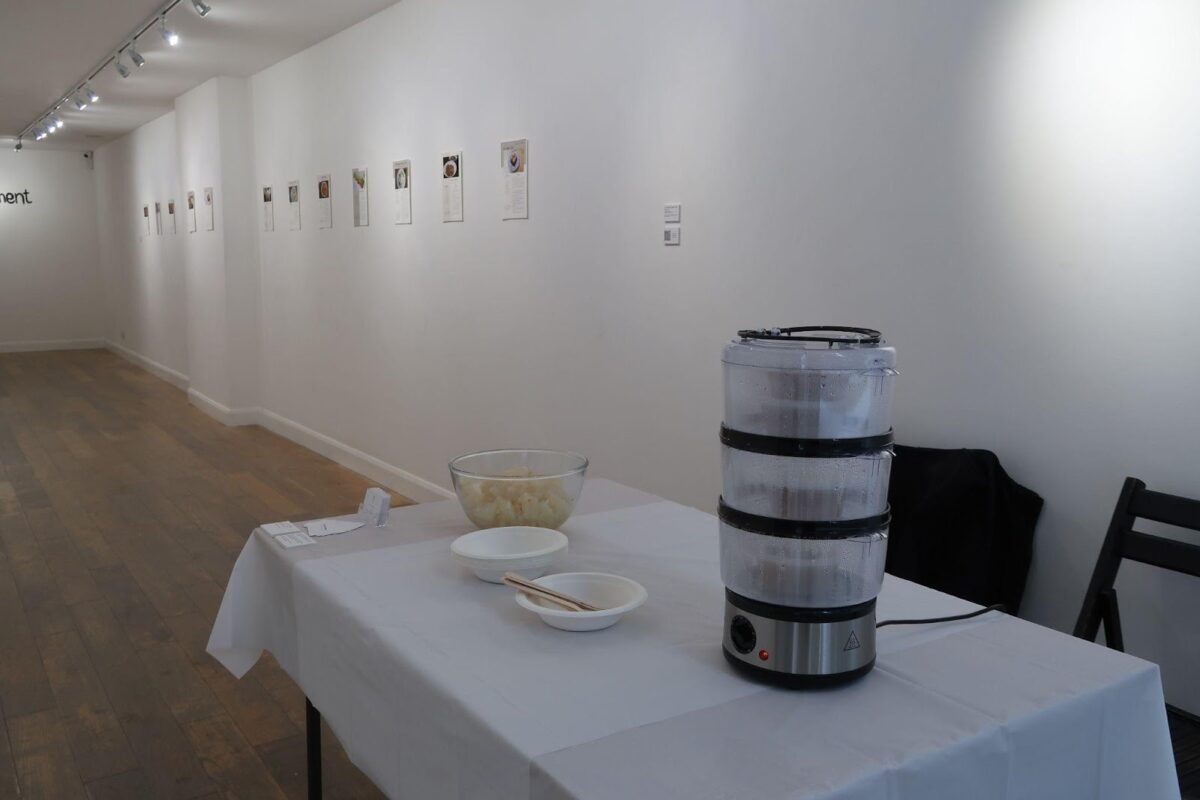
On the broken fragments of the plates, we can see hurtful phrases that her mother once said to her including “Why are you so stupid”, “Low self-esteem, you dress like a slut every day”, “Stop using depression as an excuse, you attention whore”, “I am your parent, why would I hurt you?”, and “if I knew you would grow up this way, I wouldn’t have given birth to you”. There are 18 plates representing the age at which she moved out of her family home. While her relationship with her mother is now cordial it reflects the powerful and negative ways that parents can impact their child’s sense of self and emotional well-being – behaviour the artist confirms is common in Asian households.
Just as how we can move on from traumatic experiences, but they continue to live with us, so do her plates remain under the table – occasionally peeking out to remind us of past traumas. In the performance, not all her plates broke into pieces and while not intentional this also reflects life in how we’re able to smash some ideas others have about us but some scars run deeper and we struggle to move past them.
This family tension over her choice to become an artist also manifests in her tongue-in-cheek ‘retirement manifesto’ where she’s written a document announcing her retirement as an artist given the pressure from her loved ones. The manifesto remains unsigned and undated, as her artistic career is an ongoing battle and she’s not quitting yet.
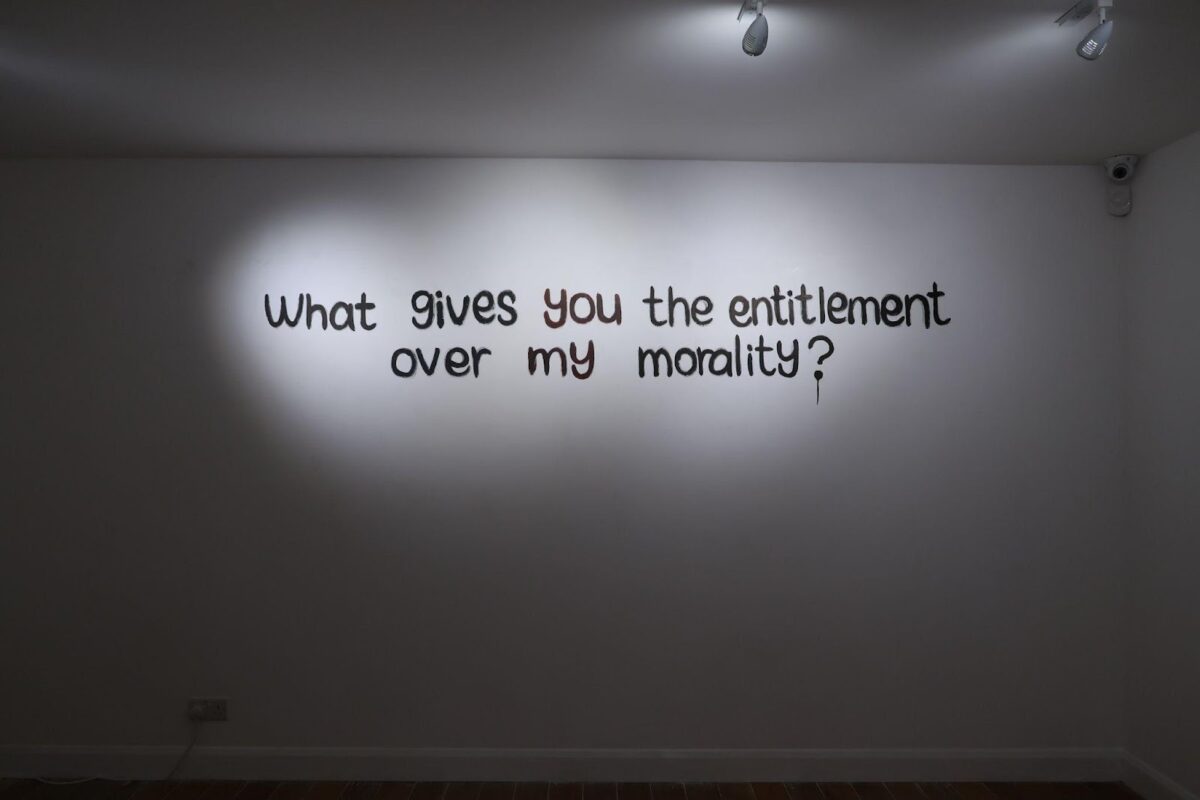
The sense of control placed over an individual is also present in the two sets of large-scale text written across the walls with one stating “I love my country, not my gahmen” with the second half of the sentence under a layer of white paint, so it remains visible but just about. Gahmen is a Singlish (a blend of Singaporean slang and English) word for Government used by those trying to avoid state censorship in a country known for its strict rules around what’s politically acceptable. It also hints at how living in such environments also leads to people self-censoring because of how these words may be interpreted, both socially and politically.
While the above works are disharmonious, the recipe cards on the walls are all about harmony and how food can unite us. Each card is of a traditional Southeast Asian dish and the words on the card relate to the conversation she had with the person who shared the food. It allows us to glimpse into intimate conversations and each guest’s relationship with food from childhood to today – including asking each person to name their favourite dish.
It’s as if we’re spying on a private dinner and another work where Lu Lei disrupts our understanding of domesticity by removing the privacy associated with a quiet dinner between two to four persons. For me, it also reflects the fact that social media and technology have brought many of us together and yet so many people still feel alone. This is reflected by the fact we’re living through a loneliness epidemic – particularly for younger people in large cities.
We don’t get to choose our family but by opening up this dining experience, the artist creates new bonds and friendships that can become a surrogate family. She is open to anyone applying to dine with her and has created an online form that anyone who wants to participate can fill in. It reflects an openness of moving on from her past trauma and creating more positive connections as part of the healing process.
This exhibition of works by Lu Lei is a deeply personal and intimate show where she lets us into her upbringing, trauma and belief that food retains its power to bring people together. She is an artist who is unafraid to challenge norms in her family dynamic and her attitudes towards the Singaporean Government and it’s this combination of bravery and openness that makes her work so compelling.
Lu Lei: Discomfort Food ran at Fitzrovia Gallery from 21-24 August. You can find out more about the artist via her website and Instagram.
All images copyright and courtesy Lu Lei.
Excerpt: the power of food to bring people together and families to drive people apart
